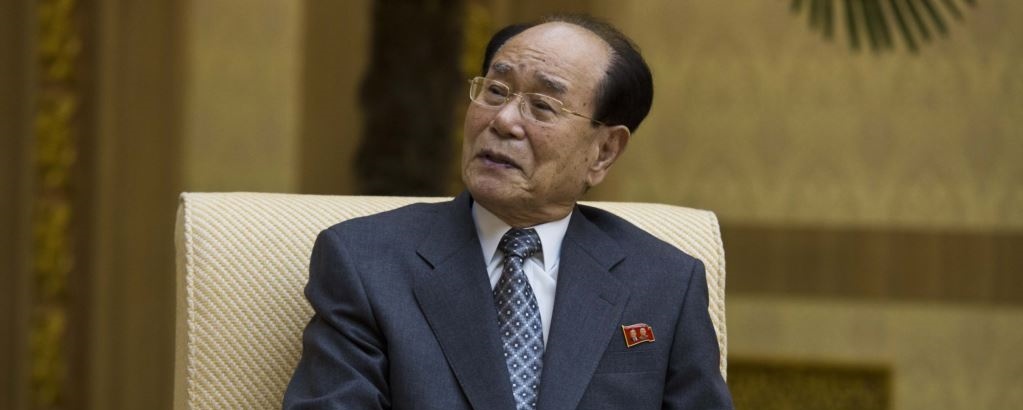North Korea moving towards truce?
February 5, 2018 | Expert Insights

On Monday (5th February), North Korea’s KCNA news agency confirmed that Kim Yong-nam, considered to be the nominal head of state, will be attending the 2018 Olympic Games opening ceremony in Pyeongchang. The opening ceremony will be attended by other dignitaries including Japanese Prime Minister Shinzo Abe and US Vice President Mike Pence.
Background
The Korean peninsula was divided post World War II in 1945. In 1950, North Korea, supported by China and Russia, invaded South Korea. The United Nations and US forces intervened on behalf of the South and the invading army was driven out during the Korean War. The two nations signed an armistice in 1953, however, there has been no peace treaty and they are technically still at war. South Korea currently houses over 25,000 American soldiers as a part of the United States Forces in Korea (USFK).
While South Korea opened up its market and instituted a system of democracy to become one of the most technologically advanced nations in the world, the modern nation of North Korea exists in self-imposed isolation. It runs on a totalitarian system under the dictatorship of Kim Jong-un. In recent years, the North Korean nuclear programme has become a source of concern for the US and the international community, resulting in UN-imposed sanctions.
Sporting events between the North and South have in the past been marred by acts of violence by Pyongyang, such as the 1987 bombing of Korean Airlines Flight 858 meant to cause chaos during Seoul’s preparations to host the 1988 games. However, in January 2018, Kim Jong-un announced that he was willing to engage in diplomatic discussions with South Korea in a bid to send a delegation to the Winter Olympics. The two countries will march under a single banner and form a joint women’s ice hockey team, the first of its kind.
Leading up to the Olympics, North Korea has been criticised for scheduling their annual Military Parade to the 8th of February, a day before the opening ceremony in Pyeongchang. The parade is an elaborate affair intended to display the country’s military prowess.. While Pyongyang has dismissed claims that this action is inflammatory, analysts have remarked that it is meant to send a signal.
Meanwhile, the annual military exercises between the United States and South Korea have been postponed until after the Paralympics. Seoul has also provided a unique exemption on their sanctions against North Korean ships entering its ports to allow the North Korean ferry Mangyongbong 92 to dock, for the transportation and lodging of artists.
Analysis
On Monday (5th February), North Korea’s KCNA news agency confirmed that Kim Yong-nam, considered to be the nominal head of state, will be attending the 2018 Olympic Games opening ceremony along with a delegation of 3 other officials and support staff. The trip is to last a total of three days. Kim Yong-nam is the president of the Presidium of the Supreme People’s Assembly and also attended the 2008 Games in Beijing. He is uninvolved in the North’s nuclear and missile programmes and is not blacklisted by the UN.
The opening ceremony will be attended by other dignitaries including Japanese Prime Minister Shinzo Abe and US Vice President Mike Pence.
Presidents Moon Jae-in and Donald Trump have expressed optimism at what the North Korean participation and delegation means for future diplomatic ties. South Korean Presidential Blue House officials stated that the visit “shows North Korea’s resolve for improved inter-Korean relations and the success of the Olympics, as well as its sincere, earnest attitude.”
However, it has been reported that Pence’s presence at the games is largely to counter any possibility of an attempt by North Korea to “hijack” the games through a propaganda campaign, and to reaffirm Washington’s stance on the state’s nuclear programme. Pence will be accompanied by Fred Warmbier, whose son Otto was an American tourist imprisoned by the North Korean government. Otto Warmbier died days after being returned to his home country in a coma and has since become a symbol of the viciousness of the regime.
Additionally, both Washington and Tokyo have cautioned against allowing better dialogue to reduce the effectiveness of UN sanctions.
Assessment
Our assessment is that while there continues to be a healthy amount of suspicion surrounding Kim Jong-un’s designs, North Korea’s participation in the Pyeongchang games represents a dramatic shift in ties. Pyongyang appears to remain rigid in its stances, however we believe that this possible “olive branch” is a chance for Seoul to further their aim to open up high level dialogue regarding peace settlements, denuclearisation, and a de-escalation of aggressions. As stated earlier, we believe that North Korea would feel more respected negotiating with its Southern neighbour than with the US.








Comments